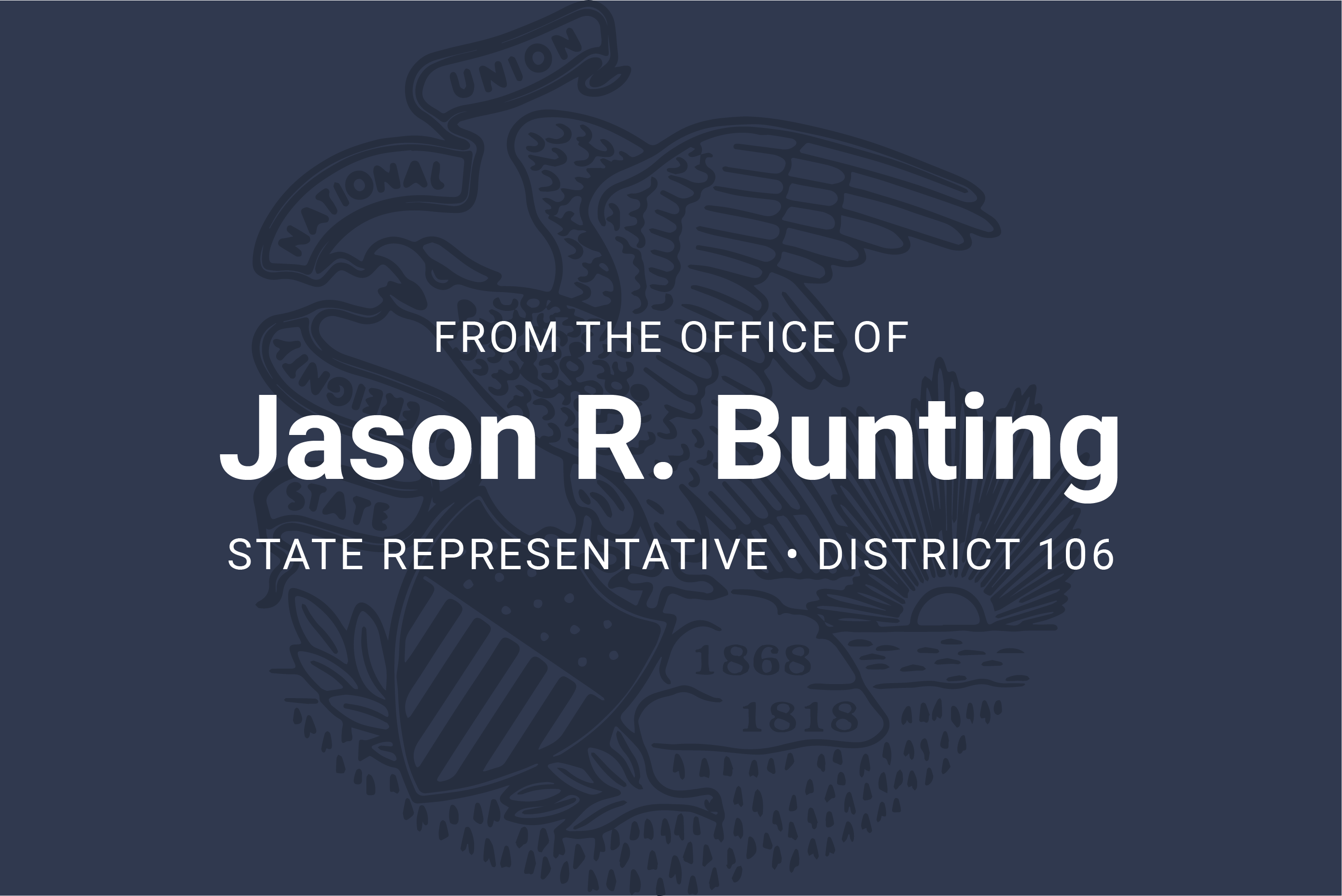In this issue:
- SWCD legislation passes committee
- Calling for moratorium on health benefits program for undocumented immigrants
- Our unpaid bills
- Illinois headlines
Thank you for reading my e-newsletter. For the latest news from state government or to share your ideas and opinions, please visit my legislative website at repbunting.com.
Soil & Water Conservation District legislation passes House committee
I was proud to present legislation in the House Transportation: Regulations Roads & Bridges Committee this week which would help our local Soil and Water Conservation Districts (SWCD). The bill would allow an SWCD to request the Department of Transportation (IDOT) to install a sign related to the district on a new or existing IDOT sign post or pole in a public right-of-way, so long as the district reimburses IDOT for the reasonable cost of manufacturing the sign. The committee approved my bill by a 16-0 vote on Tuesday. It will now be considered by the full House of Representatives.
Illinois’ land is more than 90% privately-owned, with 75% of that land being used for farmland. This kind of roadway signage raises the visibility of SWCDs and the important work that they do, and it showcases the state’s commitment to conservation. The bill has already passed the Senate by a unanimous vote, and I am looking forward to seeing it pass the House in the next few weeks.
House Republicans call for moratorium and audit of undocumented immigrants’ health benefit program
House Republicans are calling for a pause on the expansion of a billion-dollar health benefits program for undocumented immigrants and for an audit of the program.
The program has grown dramatically in recent years, both in cost and in enrollment. A report issued by the Department of Healthcare and Family Services indicated that it would require just shy of a billion dollars in state funds in the upcoming fiscal year. This is a 346% increase over last fiscal year.
Recent expansions of the program have not been eligible for federal matching funds, meaning the money spent on the program has to come from Illinois taxpayers. Medicaid is already the state’s biggest area of spending. House Republicans have filed a resolution to call for an audit of the program and for a pause in new enrollees.
The additional costs of the expansions come at a very bad time for Illinois, as we are expected to lose $760 million in additional federal funding which the state previously received through a pandemic-era program. Many other important state programs are underfunded and would benefit greatly from the hundreds of millions of dollars going to fund medical services for undocumented immigrants.
This program was created during the 2020 spring session which was shortened by the pandemic. It was included in a last-minute budget bill with no committee hearing or public input. An expansion was slipped into the 2021 budget bill using the same process. History repeated itself in 2022 with another last-minute expansion. This should not happen again this year.
Our current bill backlog
When a vendor provides the state with goods and services, they submit the bill to the Illinois Comptroller for payment. The Comptroller processes the paperwork and pays the bill when funds are available in the state’s checking account. Currently the total amount of unpaid bills is $918,968,470. This figure changes daily. Last year at this time the state had $2.5 billion in bills awaiting payment. This only includes bills submitted to the Comptroller for payment, not unfunded debts like the state’s pension liability, which is well over $100 billion.
Illinois headlines
Illinois traffic deaths dip slightly in 2022, but fatalities are still above pre-pandemic levels
Illinois firefighters get hands-on training with electric vehicles
Treasurer estimates Central Illinois has more than $157 million in unclaimed property
Where Illinois ranks among states that increased taxes the most over the last 4 decades
